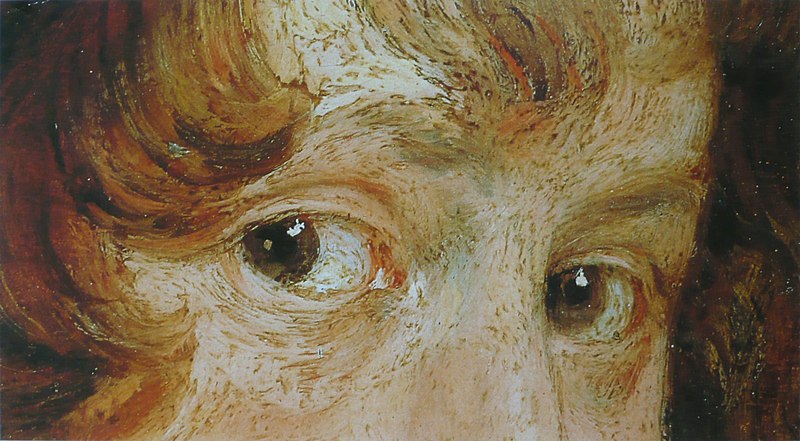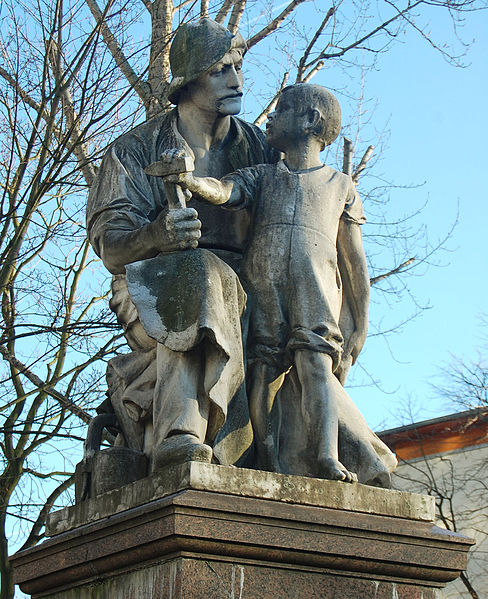 This post is the second installment of a series on love and personal development.
This post is the second installment of a series on love and personal development.
“What am I capable of?”
When someone demands change of us, it can be hard to believe that this is done out of love. At times the parent’s reprimand and the teacher’s rebuke seem unfounded or unfair. Try as we might, we cannot please our elders or even our friends. It feels as if no one appreciates us for who we are. Is there no one to recognize our value, our intrinsic worth, our dignity and beauty? We say: why can’t you love me as I am? Am I not good enough for you?
Yet on the other hand we may question our state in life. We ask ourselves: is this all I am really called to? Perhaps we are dissatisfied with our job because we don’t find it very enjoyable or edifying. Maybe we think -- I wasn’t meant to do this for my whole life. The drudgery of work day in and day out and the routine of familiar tasks come to be filled with a sense of emptiness. The busyness of everyday life overwhelms us and we feel that we will never break free to become who we really want to be. Isn’t there anyone to call me on? Doesn’t anyone believe in me? It may feel like no one sees my true potential.
Every one of us desires to be loved. We long for someone to show us that we are worth something, that we are worth a great deal, just by being ourselves. Indeed, we are fundamentally important and valuable based solely on who we are as this unique human person. Even so there is yearning deep in our hearts for greatness, to become greater than we now are. We see the model of virtuous men and women, heroes and saints who have gone before us. Whether they were prominent in artistry, athleticism, or courage, they give us hope. By the example of their life we know that greatness is possible. We desire to embody this greatness in our own lives.
Thus we come upon an underlying tension. We want to know that we are valuable as we are. Yet we also desire to become greater, to realize greater values in our person. We want to be loved and affirmed in our current state, but we secretly hope for someone to encourage us, to show us the confidence that we require in order to become truly great, to excel even our own expectations.
Perhaps this tension cannot be overcome. When one indignantly exclaims “love me as I am,” it may sound like one is giving excuses for their own poor conduct. “Sure, I am not compassionate or even civil, but that matters not, for you should love me as I am.” Here the plea for love rings hollow. It seems one is merely attempting to justify one’s lack of character. Beyond an innocent aspiration to be affirmed as good, this is heard as a demand to overlook one’s faults, to disregard what needs improvement. And again, consider when others demand change from us. When someone tells us to “grow up” or “you could have done better,” it feels like we are being betrayed. The call to change our ways can be experienced as a denial of our value. “You aren’t good enough. You have to change in order for me to love you. Become different than you are.”
 Only the full brilliance and breadth of a real love can overcome this tension. Only love can bridge this divide. In his book Nature of Sympathy Max Scheler, who greatly impacted Hildebrand’s thinking, marvels at the ability of love to draw out the hidden potential of the beloved and to initiate them in personal growth. Love is directed upon the other as they are but it also looks to who the other is meant to be. Thus Scheler says that love is a movement looking to ever higher values in the beloved. In being loved the fullness and the perfection to which the beloved is called is revealed. Their full potential comes to be identified as their “true self.” I simultaneously love the other as they are and love them as they are meant to be.
Only the full brilliance and breadth of a real love can overcome this tension. Only love can bridge this divide. In his book Nature of Sympathy Max Scheler, who greatly impacted Hildebrand’s thinking, marvels at the ability of love to draw out the hidden potential of the beloved and to initiate them in personal growth. Love is directed upon the other as they are but it also looks to who the other is meant to be. Thus Scheler says that love is a movement looking to ever higher values in the beloved. In being loved the fullness and the perfection to which the beloved is called is revealed. Their full potential comes to be identified as their “true self.” I simultaneously love the other as they are and love them as they are meant to be.It was Edith Stein’s insight in Finite and Eternal Being that the other’s perfection is already present in them now as potential being. Building off her unique philosophical worldview as an existential Thomist, she was able to articulate that the plenitude of specific virtues to which I am called (but which remains potential) is already part of who I am. My potential for perfection is contained within my actual being. Thus the call of love includes the invitation to become more fully your true self. This notion is expressed by Scheler’s felicitous turn of phrase: “Become Who You Are.” (1)
This unites the disposition to appreciate the other’s goodness with the goodwill that they continue to grow. It is in love’s mysterious power that this difficulty is overcome. There is a sense in which we may say, “I am loving you into being.” Aside from the possible interpretation of this phrase that looks to the creative force of divine love, one must first realize its meaning in the context of human love. It is only under the gaze of love that I come into full possession of my own being, that I realize who I am and who I am called to be. The famous advice of the philosopher to “know thyself” requires love for its accomplishment. I need to be loved in order to know who I am. I must be loved if I am to realize my real calling. ----------
1. In the text the phrase is "become what thou art." Cf. Max Scheler, Nature of Sympathy, trans. Peter Heath (New Brunswick: Transaction Publishers, 2008) 159. The phrase is originally Pindar’s, the Greek poet. It can be found in his Pythian Odes. Pythian 2, line 72. Image 1: Detail from Self-portrait, Anthony van Dyck (1599-1641). c. 1615. Academy of Fine Arts, Vienna, Austria. (source)
Image 2: Handwerker mit Sohn, Wilhelm Haverkamp (1864-1929). (source)


0 comments
Note: Only a member of this blog may post a comment.